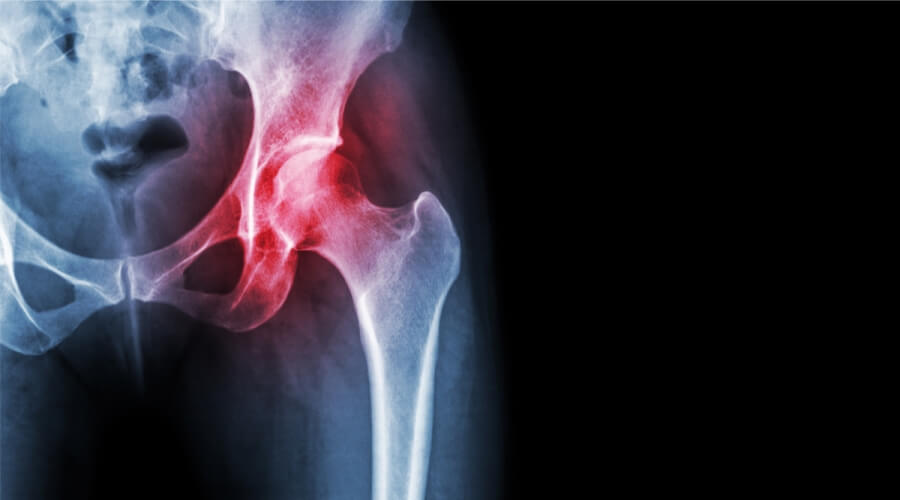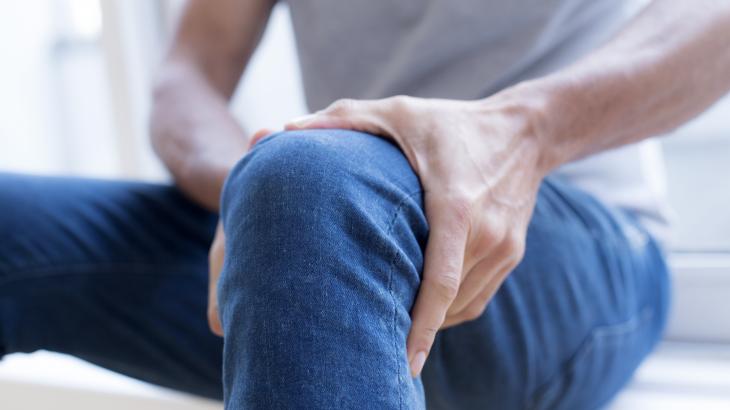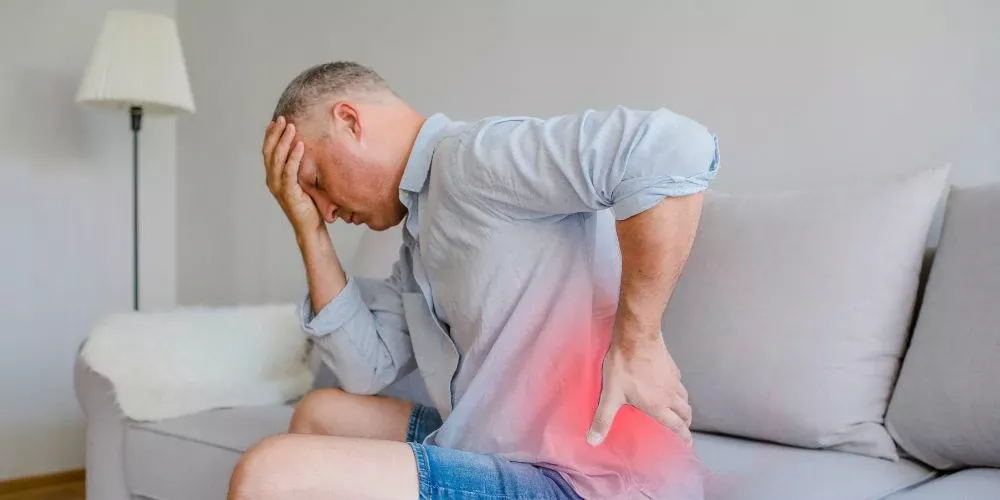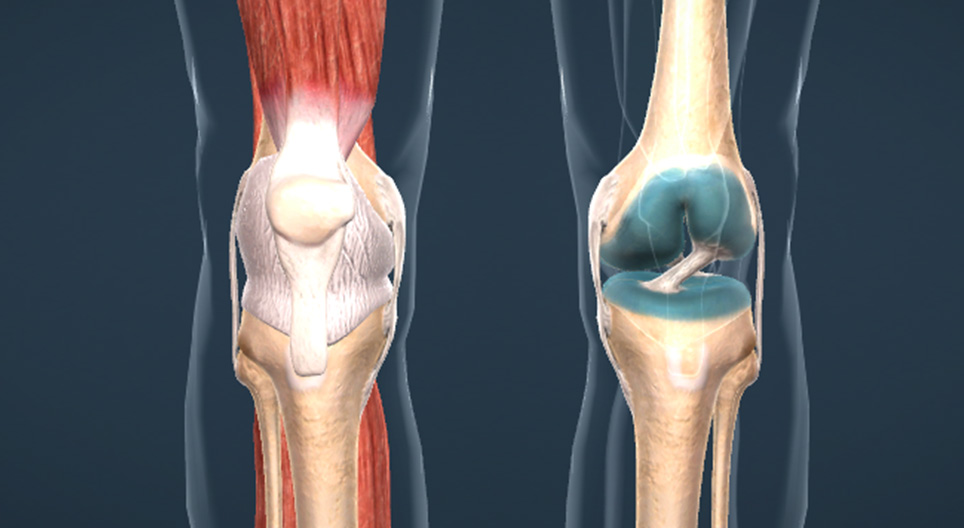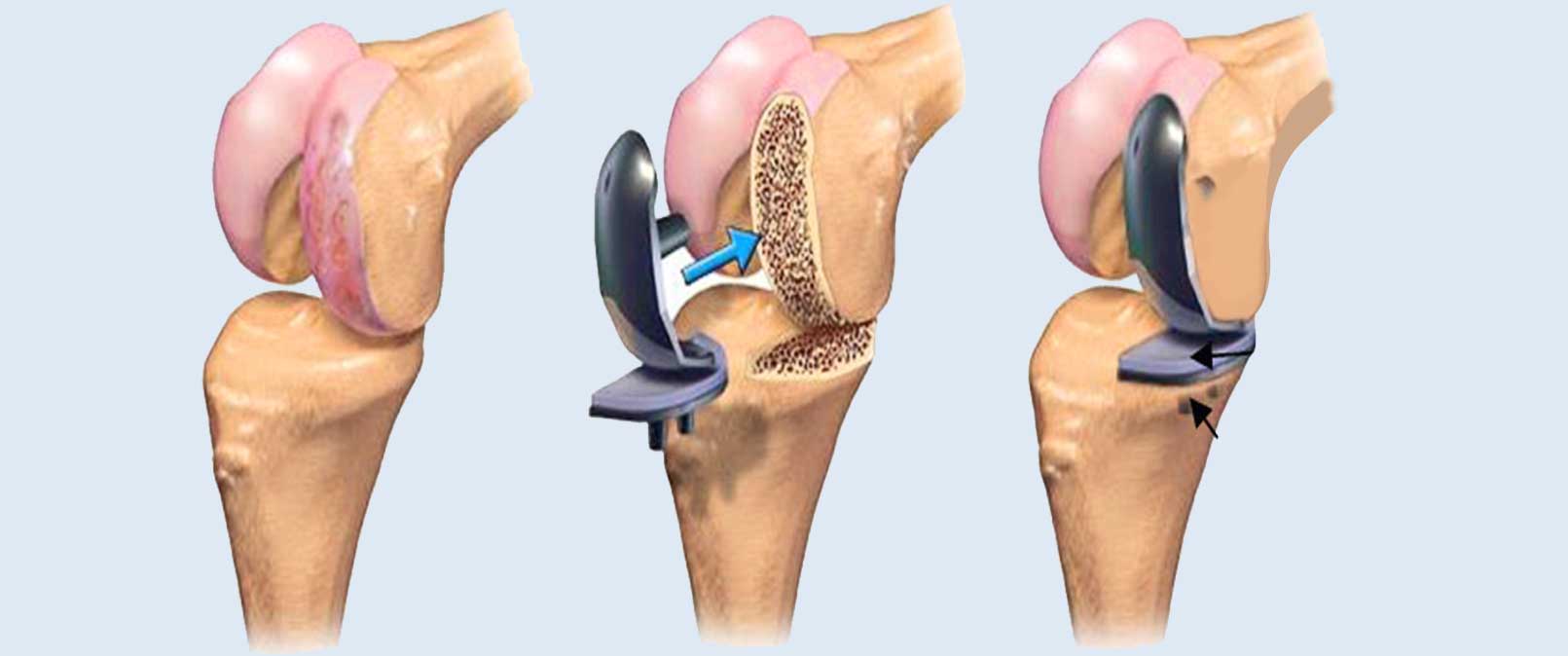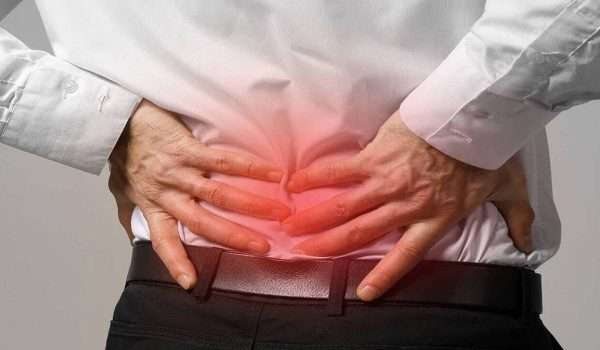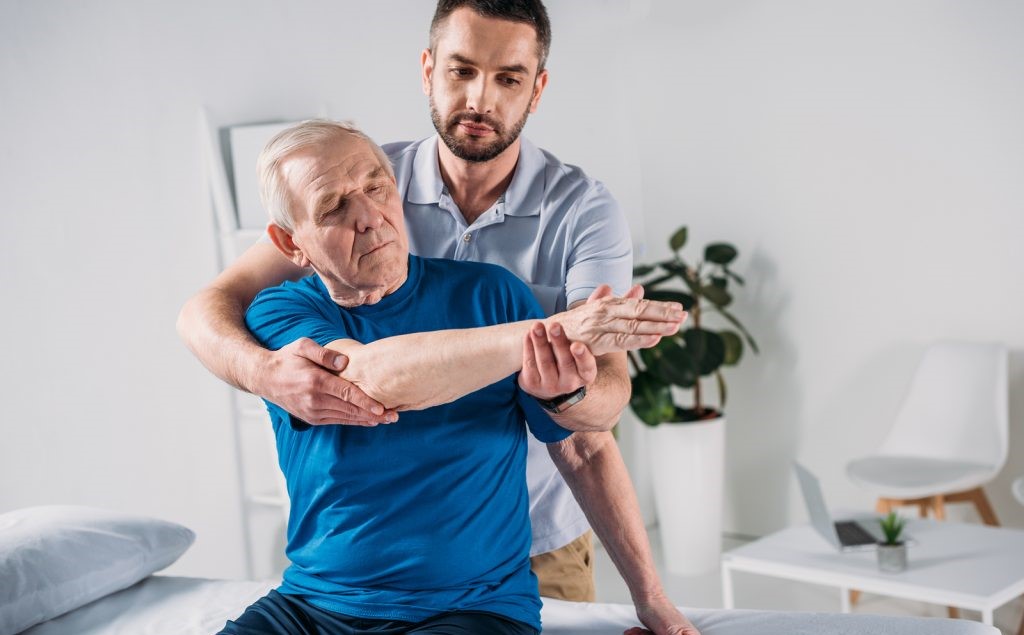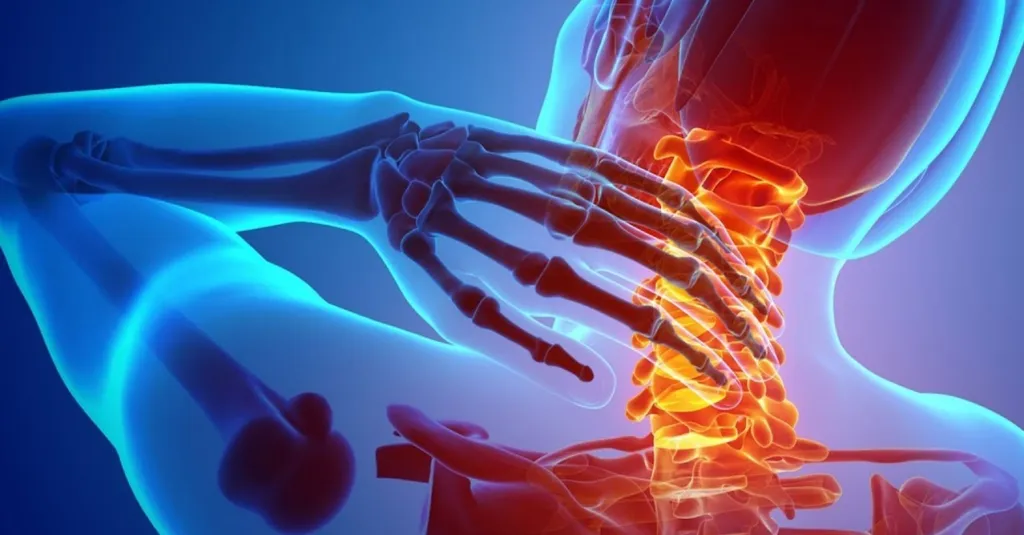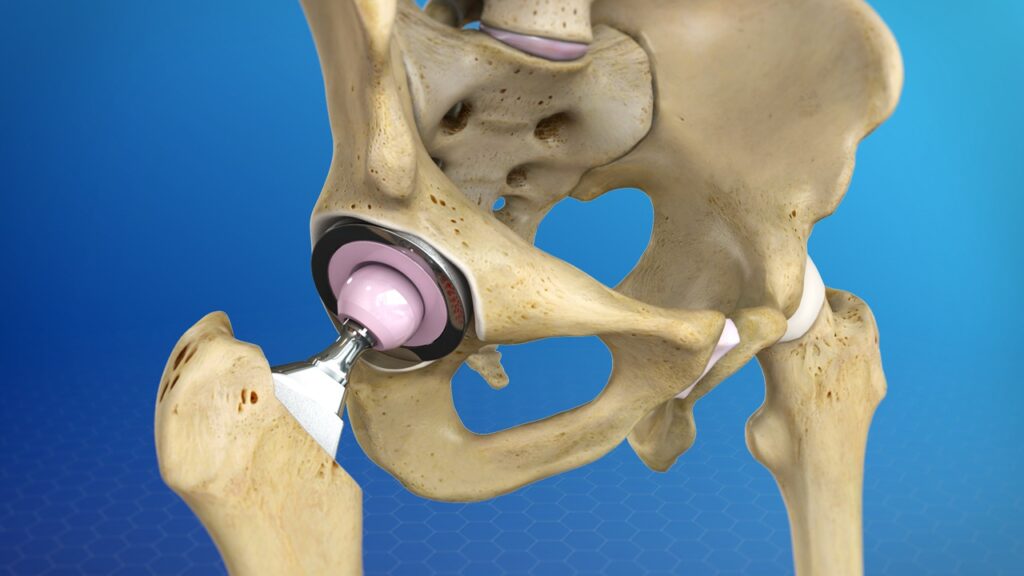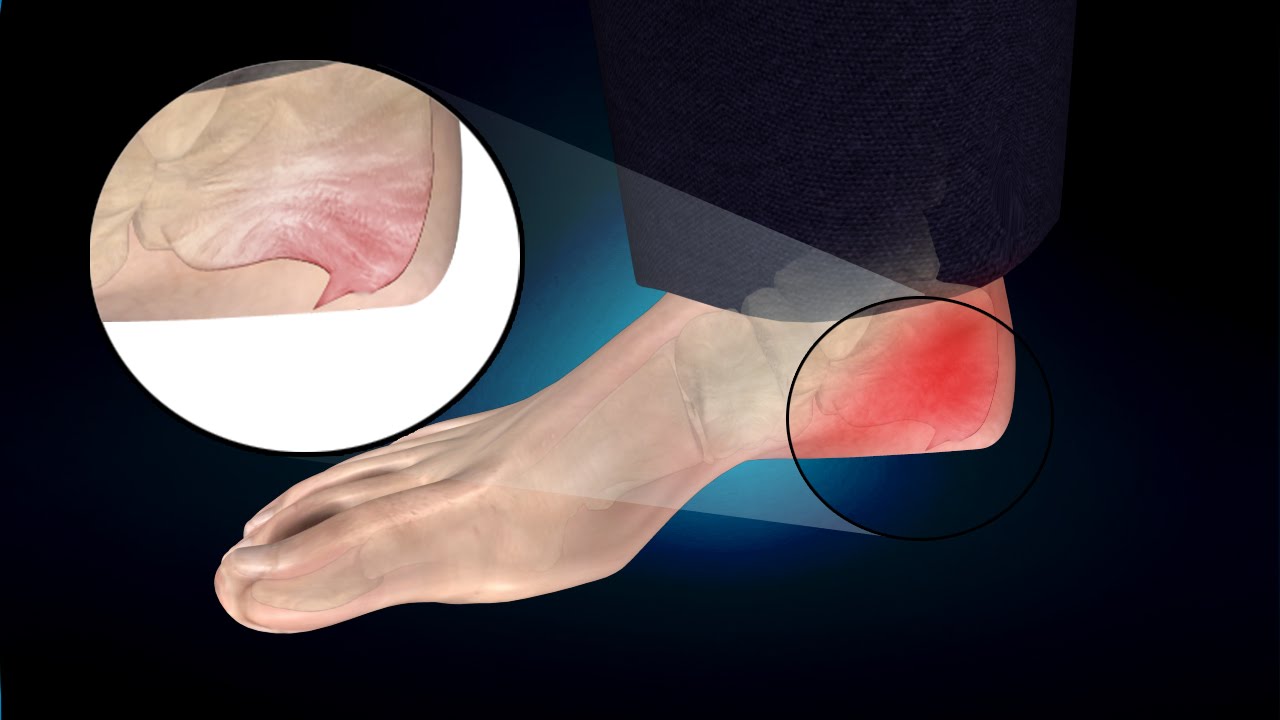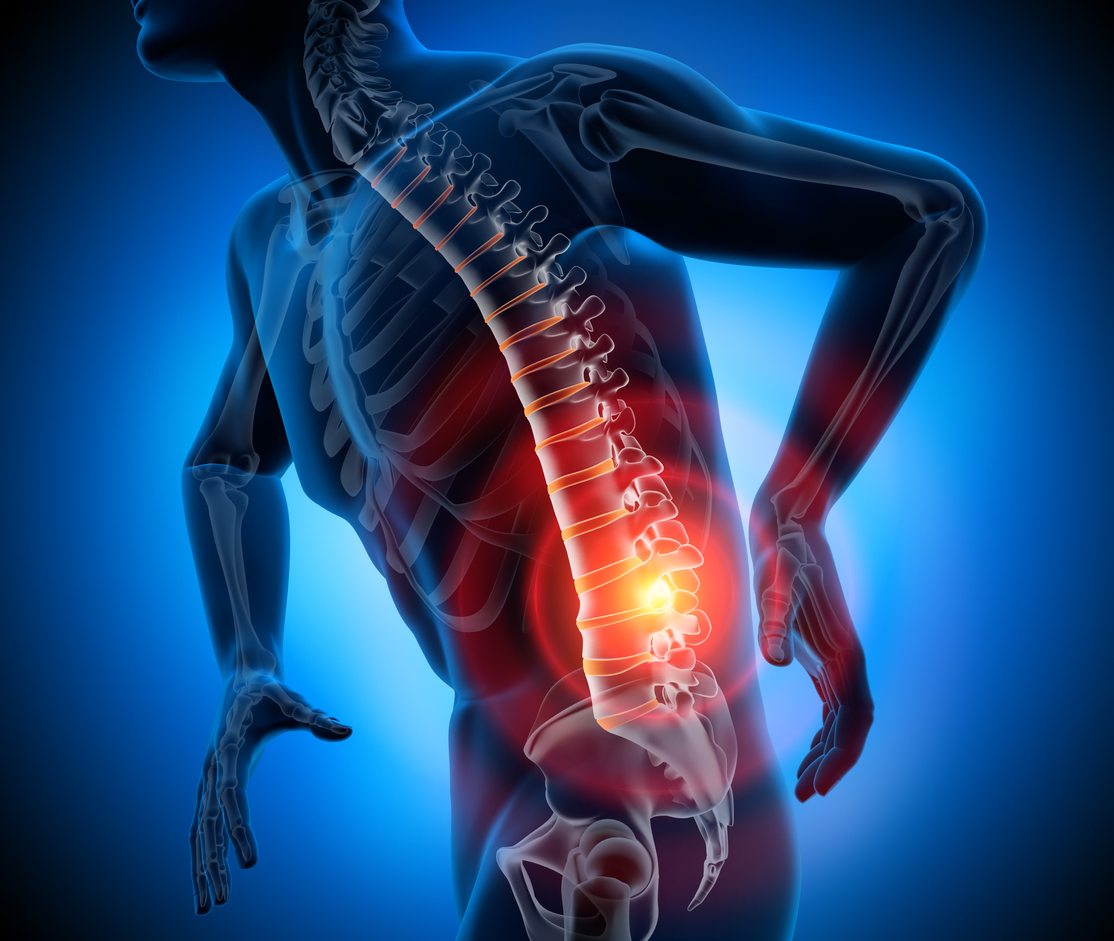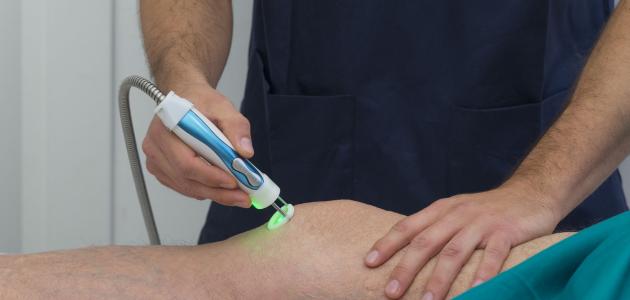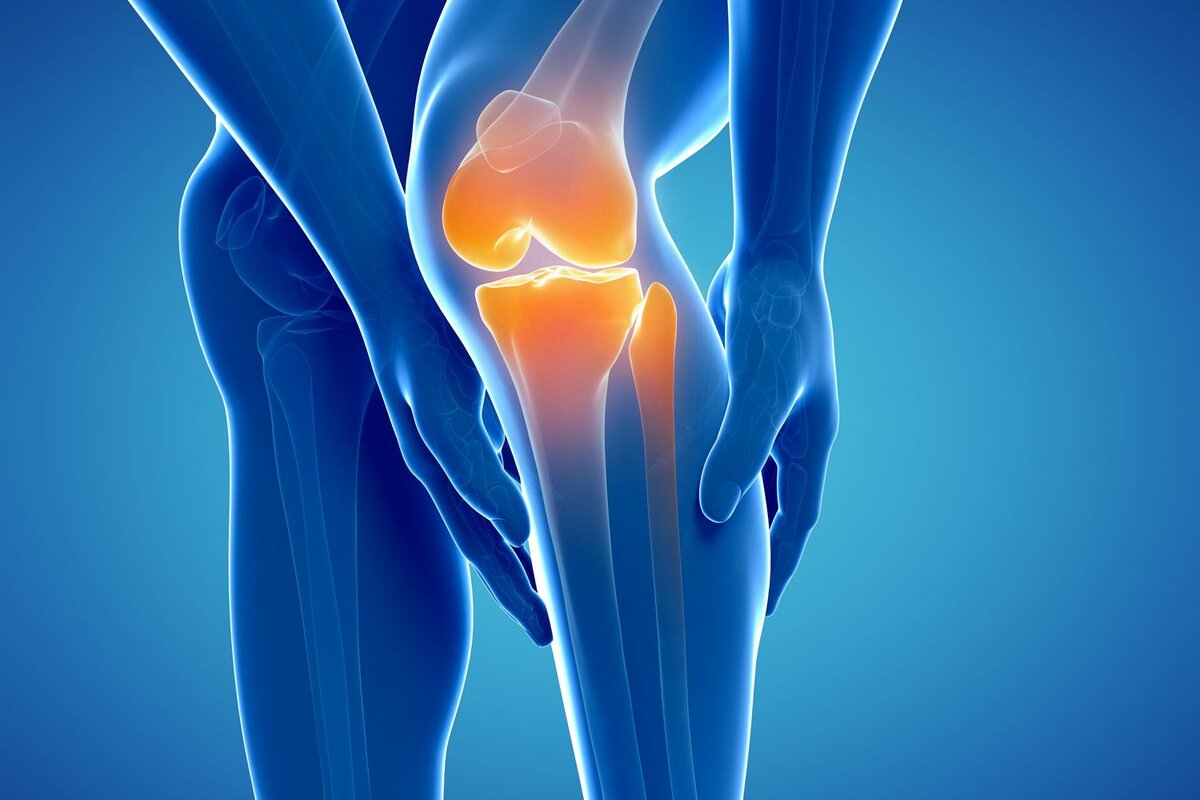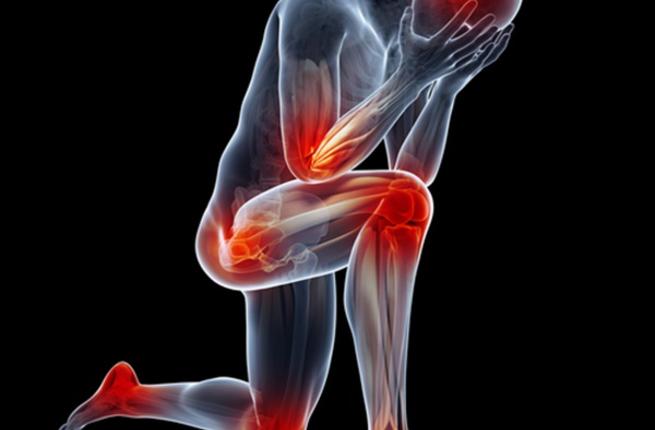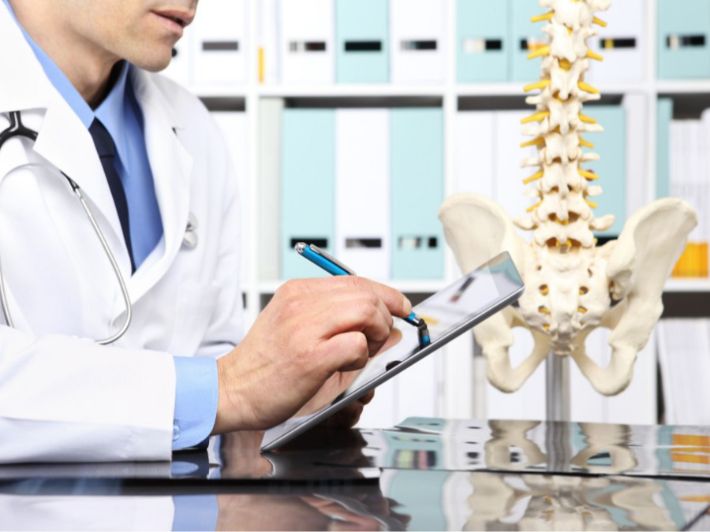Explore the Most Common Causes of Hip Joint Pain and When It Can Be Serious
Causes of Hip Joint Pain, The hip joint is one of the most important joints in the body, and having pain or ache in it could be a sign and result of more than one issue. In this article, we will learn in detail about the most important causes that lead to feeling pain in the hip joint, as well as different treatment methods for it, so follow us to receive all the latest updates on this matter.
Causes of Hip Joint Pain
The hip joint is one of the most important joints in the human body, and it bears heavy loads and different movements. However, it may face some problems and diseases that cause pain and negatively affect the individual’s life. In this article, we will shed light on some causes of hip joint pain, which include the following:
- Osteoarthritis:
Osteoarthritis is one of the common causes of hip joint pain. This inflammation occurs when the protective cartilage between the femur and pelvic bone is damaged. Osteoarthritis can lead to bone erosion and decreased joint mobility, causing pain and swelling. - Fractures in the Hip Area:
Injuries or accidents can cause wounds or fractures in the hip area. These fractures can cause severe pain and impede the normal movement of the hip. - Bursitis:
The bursa in the hip area may become inflamed, causing pain and swelling in the joint. Bursitis can result from excessive strain, wound infections, or chronic inflammatory diseases. - Avascular Necrosis:
Avascular necrosis of the hip joint bone can occur due to circulatory disorders or lack of blood supply to the bone. Avascular necrosis can lead to bone erosion at the ends, causing pain and restricted joint movement. - Tendonitis:
The tendons surrounding the hip joint can become inflamed and strained, causing pain and discomfort. Tendonitis can occur due to repeated injuries or abnormal hip movements. - Herniated Disc:
It is possible for the disc between the spine and the hip to herniate, causing another reason for hip joint pain. A herniated disc occurs when the disc material bulges and presses on the hip nerves, causing pain and numbness.
Discover how Dr. Amr Amal can make the hip replacement surgery a comfortable and successful experience.
Symptoms of Hip Joint Pain
1. Joint Swelling: One of the main signs of hip joint pain is feeling swelling in the area surrounding the joint. Swelling may be accompanied by a feeling of excessive heat in the affected area.
2. Pain During Movement: If the hip joint is inflamed or injured, the person will be able to feel sharp pain when trying to move the joint. The pain may be accompanied by cracking sounds or a feeling of abnormal movement.
3. Lack of Flexibility: Inability to smoothly move the hip joint and limited ability to bend or flex. This may be due to joint swelling or tightness in the surrounding muscles.
4. Difficulty Standing or Walking: In cases of chronic hip joint pain, the person may have difficulty standing for long periods or walking long distances. This can interfere with daily life activities and overall quality of life.
5. Muscle Spasms: People with hip joint pain may experience muscle spasms in the muscles surrounding the joint. These spasms can increase pain and decrease joint flexibility.
6. Difficulty Sleeping: Hip joint pain can make it difficult to sleep. The person may feel discomfort lying on the affected side or when changing body positions during sleep.
7. Reduced Muscle Strength: In cases of chronic hip joint pain, progression of the condition can lead to weakness in the muscles surrounding the joint. The person becomes less able to bear heavy loads or engage in physical activities.
8. Hip Stiffness: In some severe cases, the person may have difficulty fully moving the hip joint, leading to hip stiffness. The person is unable to fully bend the knee or lift the thigh.
It is important to consult a doctor if any of these symptoms appear. A doctor or physical therapist can diagnose the cause of hip joint pain and develop an appropriate treatment plan to help alleviate symptoms and restore normal joint function.
Diagnosing Hip Joint Pain
Hip joint pain can be a frustrating and painful issue, so the patient should consult an orthopedist to determine the main cause of the discomfort and hip joint movements that cause distress.
The diagnosis depends on the symptoms and location of the nagging pain, but there are some potential causes of hip joint pain that should be considered, as we discussed above, and the diagnosis is made through the following:
- Doctor’s Examination:
- The doctor will conduct a detailed medical history and a thorough physical examination of the joint and movement.
- The doctor will ask about the symptoms of pain and the activities that increase the pain.
- X-rays:
- Hip imaging with X-rays is a common diagnostic method.
- It helps detect anatomical changes such as cartilage erosion or joint inflammation.
- MRI Scan:
- MRI is used to obtain detailed joint images.
- It reveals fine details about the surrounding tissues and any damage to them.
- Blood Tests:
- Blood tests can be used to rule out causes stemming from infections or systemic diseases.
- Blood results may show indicators of joint inflammation or immune system issues.
- Ultrasound Imaging:
- Ultrasound imaging is used to identify any changes in the soft tissues surrounding the joint.
- It can detect swelling or internal fluid accumulations.
By consulting a specialized doctor and undergoing appropriate diagnostic tests, the cause of hip joint pain can be determined, and an effective treatment plan can be developed. You can also consult Dr. Amr Amal for peace of mind and proper guidance on hip joint pain. To learn more about hip replacement surgery and the procedures and advice to follow after, read this article.
Treatment for Hip Pain and Hip Replacement Surgery
5 facts you should know about treating hip pain and hip replacement surgery
1. Consult Your Doctor:
Above all, make sure to consult your attending physician and obtain appropriate pain medication for hip pain after joint replacement surgery. Pain can interfere with physical therapy if you experience joint dislocation.
2. Possibility of New Joint Dislocation:
Occasionally, the new joint may dislocate or move away from its original position, especially in the first few months after surgery. If you encounter this issue, you should consult your doctor immediately, as they will address it through another surgery to reposition the joint.
3. Physical Therapy:
After undergoing hip replacement surgery, you will need to receive physical therapy. Physical therapy sessions will include specific exercises to improve strength, range of motion, and balance in the hip. You must follow the instructions of the physical therapist to achieve the best results.
4. Hip Replacement Surgery:
Hip replacement surgery is a surgical procedure aimed at removing the damaged or diseased parts of the joint and replacing them with artificial components. The operation involves replacing the upper end of the femur with a metal ball, and then re-lining the hip joint socket in the pelvis with a cup.
5. Recovery Phase:
After hip replacement surgery, you will need a recovery period that may take several months. It is essential to follow your doctor’s instructions carefully and avoid overexerting the affected hip. You may also need to use a walker or crutches initially to assist with proper mobility.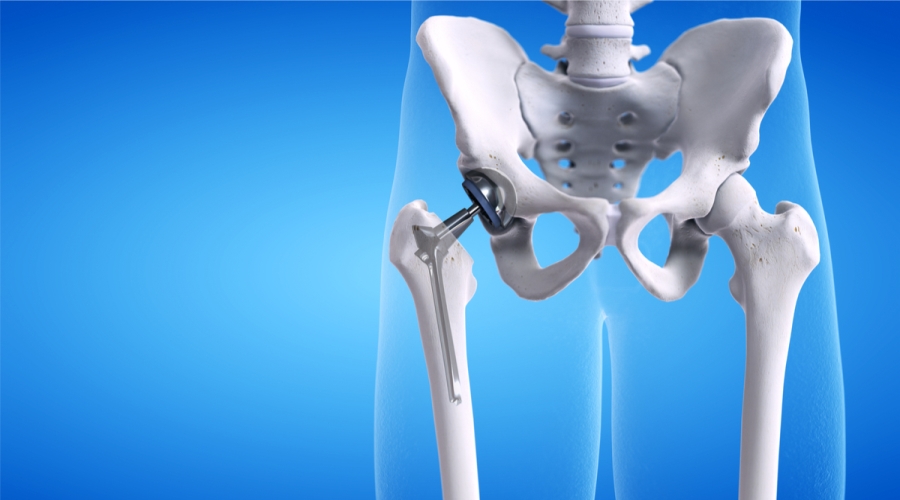
When is Hip Pain Serious?
When hip pain is accompanied by certain common symptoms, it could be a sign of a serious condition, and it is advisable to consult a doctor immediately. Among these symptoms, a fever can be a potential indicator of severe inflammation or infection. Additionally, when hip pain is accompanied by redness, swelling, and increased skin temperature in the affected area, it may indicate the possibility of a blood clot.
It is also important to notice any change in the intensity of pain after standing for long periods or walking long distances, as this could indicate irritation or inflammation in the tissues surrounding the hip. We should also be aware of hip pain accompanied by numbness, which could result from compression of the lateral femoral cutaneous nerve. If there is stiffness or difficulty in moving the hip joint, it may indicate muscle strain or a tear in the hip.
If you’d like to learn more about the details that make hip replacement surgery risky or not, click here.
Does Vitamin D Deficiency Cause Hip Joint Pain?
Many people suffer from hip joint pain due to vitamin D deficiency. Vitamin D is an essential vitamin for bone growth, bone strength, and muscle health. Deficiency in this vitamin can lead to muscle weakness and bone and joint pain, including hip joint pain.
Bones and muscles work together to achieve movement and stability. Vitamin D plays a crucial role in the absorption of calcium and the regulation of the balance between calcium and phosphorus in the body. When there is a deficiency of this vitamin, the balance of calcium and phosphorus in the body may be affected, negatively impacting bone health and muscle function.
Additionally, people with vitamin D deficiency may have low levels of calcium in the blood. This calcium deficiency can lead to muscle weakness and joint pain, including hip joint pain.
Therefore, maintaining adequate vitamin D levels is essential for maintaining bone health and muscle function. It is recommended to consume vitamin D-rich sources such as fatty fish, eggs, and vitamin D-fortified milk. It is also advisable to visit a doctor to undergo tests and analyses to determine the level of vitamin D in the body and receive appropriate treatment recommendations.
Connect with Dr. Amr Amal to experience the necessary care and expertise for effectively treating hip joint pain.
Is Hip Joint Pain a Sign of Blood Clots?
Hip thrombosis is a condition in which blood abnormally accumulates in the blood vessels, preventing proper flow. Hip thrombosis can result from various factors, such as venous thrombosis, a puncture in the blood vessels, or an obstruction caused by a clot, leading to a stoppage of blood flow and accumulation in the veins.
Among the symptoms of hip thrombosis, the patient may experience sharp pain in the joint. They may also notice redness, swelling, and increased skin temperature in the affected area. The patient may also experience warmth, itching, and numbness in the affected area. Additionally, the patient may observe swollen, blue, or rigid veins in the thigh. If any of these symptoms are present, the patient should immediately consult a doctor for proper diagnosis and treatment.
It is crucial for the patient to be aware of the importance of early detection of hip thrombosis, as early diagnosis contributes to effectively treating the problem and preventing serious complications. The patient is also advised to follow preventive measures for hip thrombosis, such as regular movement, avoiding prolonged sitting or standing in a fixed position, and wearing compression stockings. It is essential not to delay visiting the doctor if there is any noticeable change in symptoms, as this could indicate the progression of the clot and the need for immediate intervention.
Does Cold Weather Cause Hip Joint Pain?
Some people experience hip joint pain during the winter season, and some wonder if cold weather causes this pain. Cold weather itself does not cause joint diseases, but it can increase the severity of pain for people who already have pre-existing joint problems.
When bones are exposed to cold temperatures, particularly after being warmed by hot water, clothing, or bedding, a sudden change in temperature can occur, leading to joint inflammation and increased pain. Therefore, feeling pain in the hip joint, outer hip, or upper thigh area during the winter season may be a sign of hip joint inflammation.
If the pain persists and worsens, it is recommended to consult a neurologist or rheumatologist to undergo necessary tests and determine the exact cause of the pain. This may include a clinical examination, nerve conduction studies, imaging tests, and other necessary tests to establish an accurate diagnosis. You can enjoy comfort and confidence after treating hip joint pain with Dr. Amr Amal and continue life without restrictions.
To learn more, we recommend the following article.
My Experience with Hip Joint Pain
After experiencing severe pain in my hip joint and inability to carry out daily activities efficiently, I decided to search for an expert who could address this issue. I found Dr. Amr Amal, a specialist in orthopedic and joint surgery, and decided to seek his comprehensive care for my problem.
My experience with Dr. Amr Amal was remarkable. Through his advanced medical professionalism and extensive experience in this field, he guided me confidently through the diagnostic process and developed the appropriate treatment plan for my condition. He listened carefully to the details of my symptoms and pain and conducted the necessary tests to accurately diagnose my condition.
When presenting me with treatment options, Dr. Amr Amal explained the cause of my hip joint pain and described in detail the innovative methods that could be used to solve my problem. Thanks to his surgical skills and the techniques he follows, and my growing confidence in him, I decided to undergo a hip replacement surgery.
It was amazing to witness a significant improvement after the surgery, as I was relieved from the pain and began to regain my daily activities with confidence. Dr. Amr Amal worked efficiently, taking all necessary precautions to ensure the success of the surgery. I now feel immense gratitude to Dr. Amr Amal and his excellent medical team. They have corrected my life by restoring my mobility and freedom of movement. I highly recommend visiting Dr. Amr Amal for anyone suffering from hip joint pain, as you will find the professional care and comprehensive treatment you need.
Best Orthopedic Doctor for Treating Hip Joint Pain in Cairo
With his extensive experience in the field of orthopedic surgery, Dr. Amr Amal is considered one of the best specialized doctors in treating these conditions in Cairo, Egypt.
Dr. Amr Amal studied at the Faculty of Medicine at Ain Shams University, where he graduated with honors and a distinction. After graduating, he worked as a resident at Ain Shams University hospitals for three years, where he gained valuable experience in the field of orthopedic surgery. He was then appointed as an Assistant Lecturer at the same hospitals for five years, where he demonstrated exceptional skills in teaching and performing surgical operations.
Today, Dr. Amr Aml works as a professor of orthopedic surgeries, joints, and arthroscopy at Ain Shams University, where he trains students and young doctors on the latest techniques in the field of surgical treatment for bones and joints. Thanks to his professional experience and teaching skills, Dr. Amr Aml has become an active member of the faculty at Ain Shams University.</strong></h2>
Dr. Amr Aml is a certified orthopedic consultant in New Cairo, where he receives patients seeking treatment for hip joint pain and other bone problems. Dr. Amr Aml is the ideal choice for those suffering from bone and joint diseases, as he possesses deep knowledge and technical skills in performing complex surgical procedures.
Dr. Amr Aml’s clinics offer the latest treatment methods for patients, whether through physical therapy or surgical treatment. Based on patient feedback and evaluation, Dr. Amr Aml is highly respected and esteemed. To successfully address hip joint pain and other bone problems, book your appointment now with Dr. Amr Aml, where you will receive excellent medical care and safe, effective treatment for your health issues.
